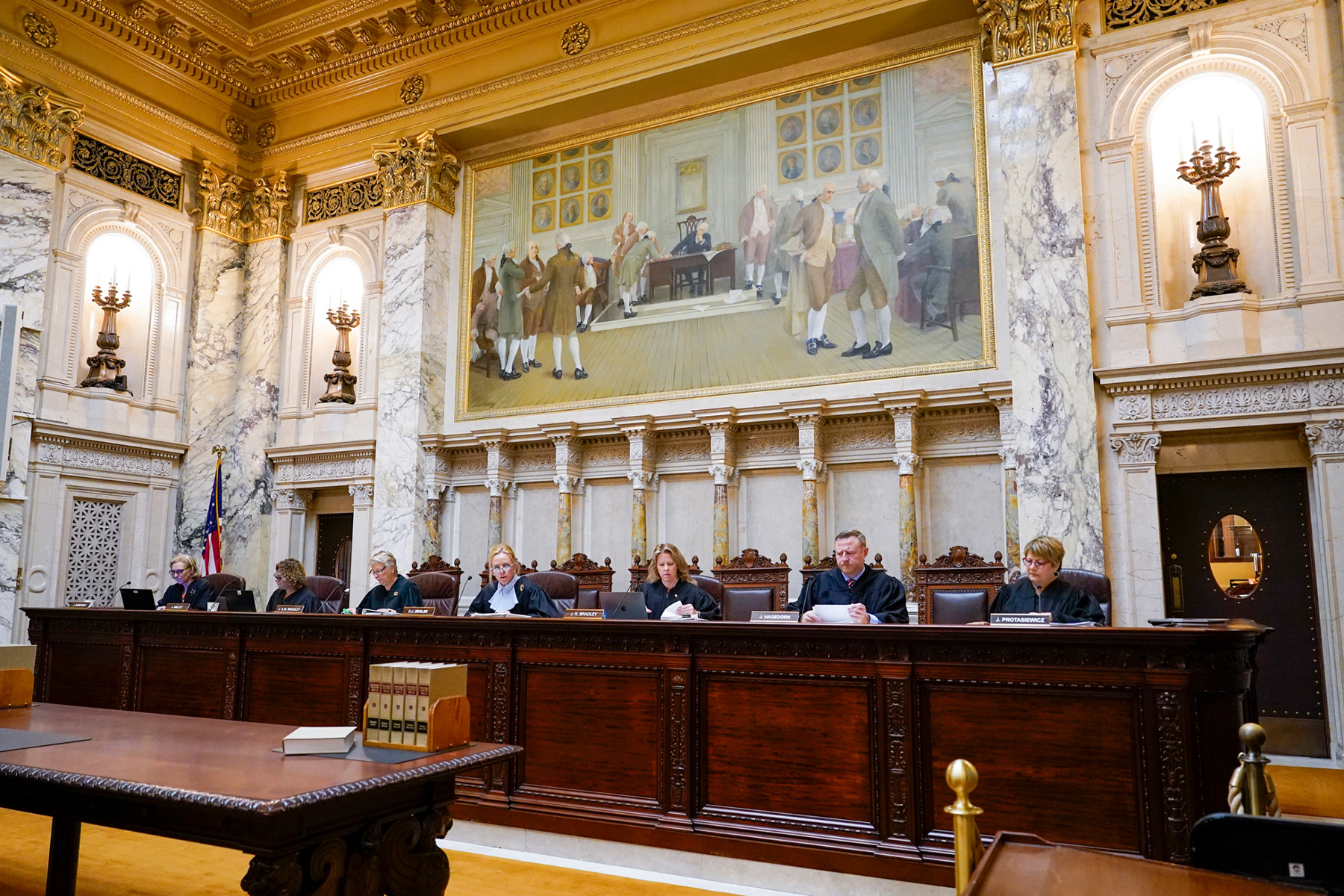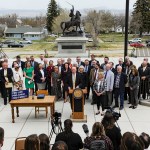The Wisconsin Supreme Court will hear a lawsuit filed by Planned Parenthood of Wisconsin that asks the court to declare that access to abortion is a right protected by the state constitution, according to a draft court order obtained by Wisconsin Watch.
The draft order also indicates that the court has decided to deny an effort from a coalition of anti-abortion groups — Wisconsin Right to Life, Wisconsin Family Action and Pro-Life Wisconsin — to intervene in the case, but will allow them to file a brief opposing the lawsuit.
“This is not a public order,” Chief Justice Annette Ziegler told Wisconsin Watch in a statement in response to questions about the draft order. “I am not in a position to release any further information.”
After the story published, Ziegler issued the following statement publicly:
“Today the entire court was shocked to learn that a confidential draft document was ostensibly leaked to the press. I have contacted law enforcement to request that a full investigation be conducted. We are all united behind this investigation to identify the source of the apparent leak. The seven of us condemn this breach.”
The court’s other six justices did not reply to questions from Wisconsin Watch about the draft order.
-
Previous Coverage:
The case offers the court’s four-member liberal majority the chance to issue a potentially broad ruling that could include sweeping protections for access to abortion. The draft order obtained by Wisconsin Watch does not include any concurring or dissenting opinions, leaving it unclear which justices voted for or against accepting the case.
Oral arguments in the case likely won’t happen until after the court’s next term starts in the fall.
The lawsuit was filed directly with the state Supreme Court on Feb. 22 by Planned Parenthood of Wisconsin, two abortion providers and a group of anonymous women who have received abortions. The group argues the Wisconsin Constitution protects both a pregnant woman’s right to have an abortion and a doctor’s right to perform the procedure. The draft order defers a decision whether and how to keep the identities of the women anonymous.
“It is ordered that the petition for leave to commence an original action is granted, this court assumes jurisdiction over this entire action, and the petitioners may not raise or argue issues not set forth in the petition for leave to commence an original action unless otherwise ordered by the court,” the draft order reads.
Original actions, which are lawsuits filed directly with the state Supreme Court, are uncommon and usually reserved for litigation that carries substantial weight and has a statewide effect.
This would be the fourth original action taken on by the court this term. During the 2020-21 term, under a conservative majority, the court accepted three original actions, according to a tally from Marquette University Professor Alan Ball, a diligent court tracker. During the 2019-20 term, the court took seven original actions. In 2018-19, it accepted one direct suit. In all of the 15 terms prior to that, it took a total of four.
Planned Parenthood’s argument is rooted in Article I, Section 1, of the Wisconsin Constitution, which states, in part: “All people are born equally free and independent, and have certain inherent rights; among these are life, liberty and the pursuit of happiness.”
-
Previous Coverage:
-
Previous Coverage: Tammy Baldwin has won big in closely divided Wisconsin. Can she do it again?
“All Wisconsin residents … have inherent rights to choose whether and when to have a child, and whether or when to seek medical care,” Planned Parenthood argues in its lawsuit.
The lawsuit asks the court to declare, among other things, “that the right to equal protection guaranteed by (the Wisconsin Constitution) encompasses the right to make one’s own decisions about reproductive health care, including whether or not to carry a pregnancy to term and a physician’s right to provide appropriate abortion care.”
The anti-abortion groups sought to intervene in the case because they “have an interest in protecting various abortion-related laws that they have advocated for and publicly defended,” according to a legal brief.
The draft order does not make clear what the court plans to do with a separate lawsuit involving abortion rights.
That case stems from a lawsuit filed by Democratic Attorney General Josh Kaul in June 2022, seeking to block an 1849 Wisconsin law widely considered to ban abortion. The lawsuit was filed days after the U.S. Supreme Court overturned Roe v. Wade, the court’s landmark precedent establishing a constitutional right to terminate a pregnancy, triggering the 19th-century law.
Dane County Circuit Court Judge Diane Schlipper ruled last year that the 1849 law banned feticide and did not apply to consensual abortions. Sheboygan County District Attorney Joel Urmanski asked the state Supreme Court to take up an appeal of Schlipper’s ruling, but it has yet to rule on that request.
“As I have repeatedly stated, it is my view that, properly interpreted, the statute at issue prohibits performing abortions (including consensual abortions) unless the exception for abortions necessary to save the life of the mother applies,” Urmanski said in a statement at the time.
The Planned Parenthood case is the latest in a series of high-profile cases that the Wisconsin Supreme Court has agreed to hear since shifting to a liberal majority in August 2023.
In December, the court threw out Wisconsin’s gerrymandered legislative districts. More recently, it has heard oral arguments in cases that could further alter the balance of power in the Capitol and restore the use of unstaffed absentee ballot drop boxes ahead of November’s presidential election. Rulings in those cases are expected soon, with the court’s current term wrapping up next week.
This article first appeared on Wisconsin Watch and is republished here under a Creative Commons license.![]()







